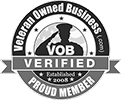Minimize Estate Taxes
And Maximize the Assets You Pass On
You have been working hard and paying taxes your entire life, but no one should have to pay taxes on what you have spent your life building. Unless you plan ahead, the value of your assets could be at risk with estate tax (sometimes also called inheritance tax or death tax).
Who Has to Pay the Estate Tax?
Estate tax is paid on the net value of all the assets you own at the time you pass away. It amounts to 40% of the value of your estate and must be paid by your family or other beneficiaries within nine months of you passing away.
As of 2025, federal estate tax largely affects high-net-worth individuals with an estate exceeding $13.99 million ($27.98 million for a married couple). Still, the regulations change from year to year and from administration to administration.
Just because you are not affected by the federal estate tax now doesn’t mean you won’t be in ten years’ time.
It is beneficial to understand the steps needed to reduce your tax burden. Keep in mind that your assets could be subject to state estate tax, even if you are not close to the current federal exemption limit right now.
How to Minimize Estate Tax
How do you reduce your family’s tax burden? One of the most widely known ways to minimize estate tax is by gifting assets.
Depending on your circumstances, you can also consider the following:
- Setting up asset protection trusts
- Creating life insurance trusts
- Forming family limited partnerships or limited liability companies (LLCs)
- Using qualified personal residence trusts
- Utilizing dynasty trusts
- Selling assets to an irrevocable trust created for you by a third party
Start Conserving Your Assets
As well as minimizing estate tax in the future, there is another concern for many individuals: preserving your assets now.
It is ensured that both your asset preservation and estate tax planning concerns are accounted for. It is important to take measures to protect your assets before a larger percentage is lost through unnecessary tax payments or long-term care.
A few simple asset preservation planning measures can make a big difference.
An independent estate attorney will look at the following areas of your assets and advise on the steps you can take to protect them, based on your circumstances:
- The gross value of your estate
- Life insurance
- IRA and 401K accounts
- Jointly owned assets with a spouse
- The present situation with your will(s)
With you, they will consider the risks and how best to counter them, using strategies such as revocable trust setups. They also work with your financial advisor to explore asset preservation options such as wealth replacement strategies using life insurance and other vehicles.
Attending to this while you are alive and well could save your family from paying the price.


